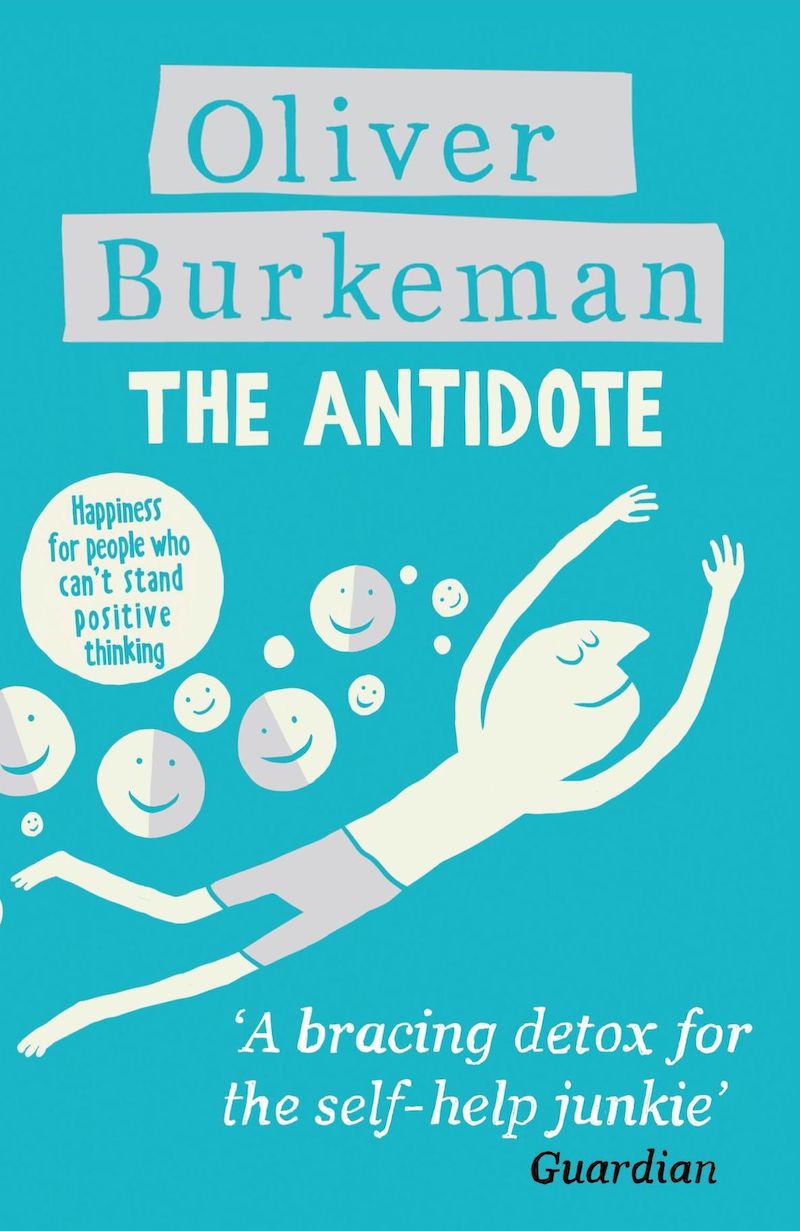
The Antidote
Oliver Burkeman
And here lies the essential between Stoicism and the modern-day 'cult of optimism.' For the Stoics, the ideal state of mind was tranquility, not the excitable cheer that positive thinkers usually seem to mean when they use the word, 'happiness.' And tranquility was to be achieved not by strenuously chasing after enjoyable experiences, but by cultivating a kind of calm indifference towards one's circumstances.
At the bottom of all this lies the principle that the countercultural philosophers of the 1950s and '60s, Alan Watts, echoing Aldous Huxley, labelled 'the law of reverse effort,' or the 'backwards law': the notion that in all sorts of contexts, from our personal lives to politics, all this trying to make everything right is a big part of what's wrong. Or, to quote Watts, that 'when you try to stay on the surface of the water, you sink'; but when you try to sink, you float and that 'insecurity is the result of trying to be secure.' In many cases, wrote Huxley, 'the harder we try with the conscious will to do something, the less we shall succeed'.
For the Stoics, then, our judgments about the world are all that we can control, but also all that we need to control in order to be happy; tranquility results from replacing our irrational judgments with rational ones.
We elevate those things we want, those things we would prefer to have, into things we believe we must have; we feel we must perform well in certain circumstances, or that other people must treat us well. Because we think these things must occur, it follows that it would be an absolute catastrophe if they did not.
The fact that we desire some things, and dislike or hate others, is what motivates virtually every human activity. Rather than merely enjoying pleasurable things during the moments in which they occur, and experiencing the unpleasantness of painful things, we develop the habits of clinging an aversion: we grasp at what we like, trying to hold onto it forever.
What motivates our investment in goals and planning for the future, much of the time, isn't any sober recognition of the virtues of preparation and looking ahead. Rather, it's something much more emotional: how deeply uncomfortable we are made by feelings of uncertainty. [...] We invest ever more fiercely in our preferred vision of that future — not because it will help us achieve it, but because it helps rid us of feelings of uncertainty in the present.
'He should think of himself more like a frog,' she said. 'You should sun yourself on a lily-pad until you get bored, then when the time is right, you should jump to a new lily-pad and hang out there for a while. Continue this over and over, moving in whatever direction feels right.'
Insecurity is the essential nature of reality. [...] The collapse of your apparent security represents a confrontation with life as it really is. 'Things are not permanent, they don't last, there is no final security,' she says. What makes us miserable is not this truth, but our efforts to escape it.
Impermanence is the nature of the universe; that 'the only constant is change'.
Watts: 'Life is a dance, and when you are dancing, you are not intent on getting somewhere. The meaning and purpose of dancing is the dance'.
Lao Tzu: 'A good traveler has no fixed plans, and is not intent upon arriving.'